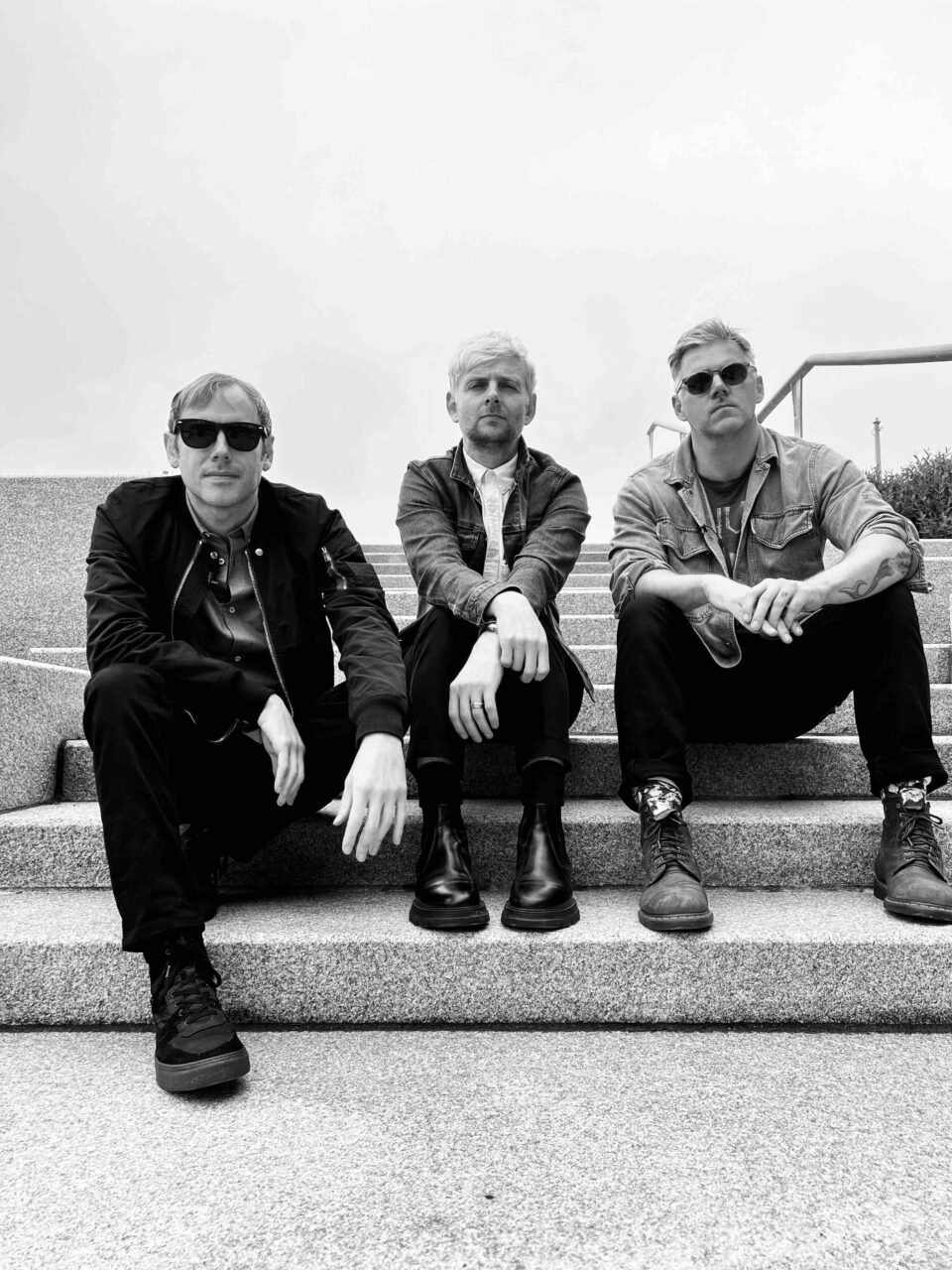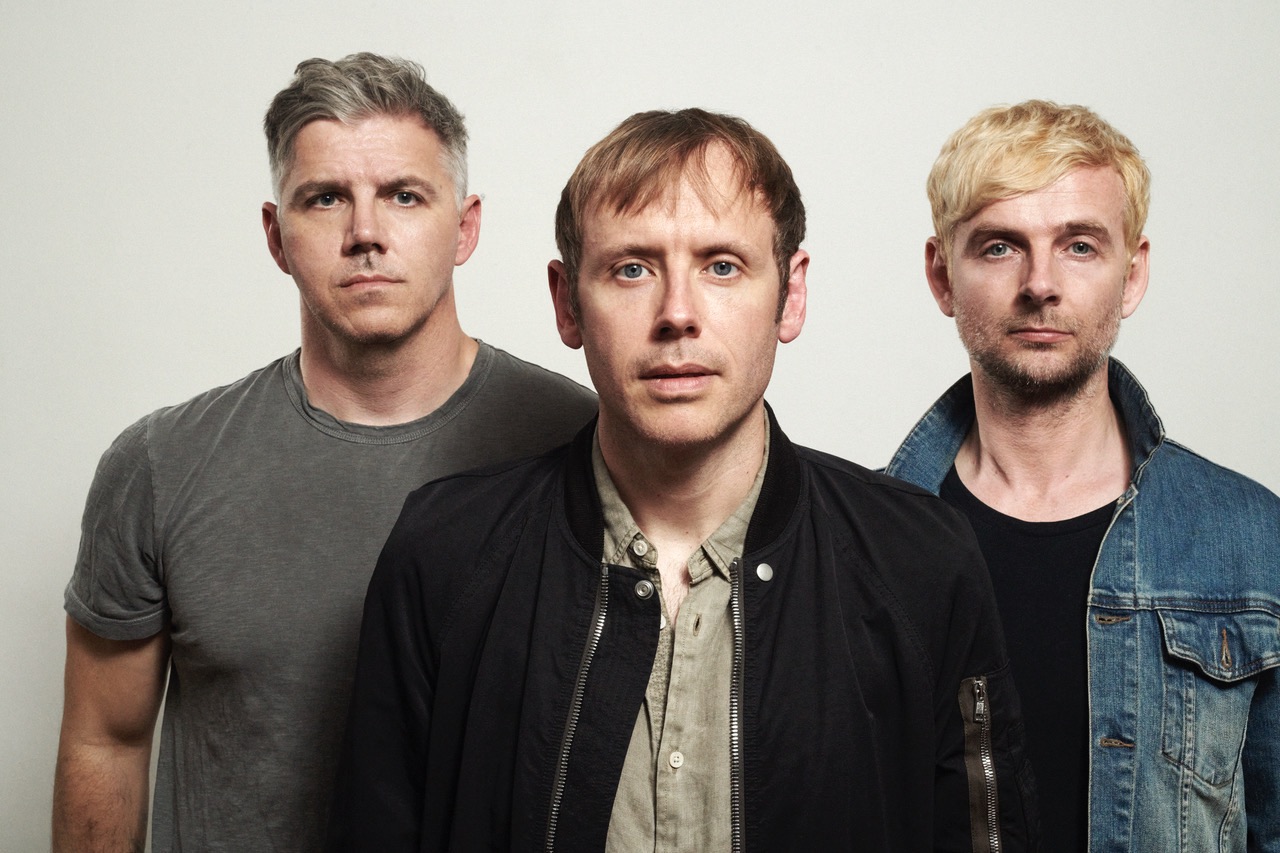From the outside, it seemed like No Devotion might just be a one-off project—a gesture of goodwill extended by Thursday’s Geoff Rickly toward the remaining members of Lostprophets. Look up what happened if you need to, but suffice to say that at the start of 2013, the careers of those five musicians had been irrevocably ruined. But a few months later, No Devotion rose like thick smoke out of the ashes with Permanence—an album of moody, desolate songs that seemed to exist in black-and-white.
The album flickered, shimmered, and trembled with pain in the wake of that personal trauma as it attempted to heal and soothe those wounds, and despite moments of musical levity, its darkness was undeniable. Rickly, too, was battling his own demons: an at-the-time unpublicized heroin addiction that had begun soon after Thursday broke up in 2011. As much as Permanence—a record whose sound and title echoed Joy Division’s aesthetic—was searching for a way out of it, it couldn’t quite shake it off.
What’s more, it was released on Rickly’s ill-fated Collect Records on September 25, 2015—the day after the label announced it was severing ties with silent investor Martin Shkreli over his company’s unconscionable price hike of AIDS drug Daraprim. Still, the album deservedly received universal acclaim. But then, with the announcement in 2016 that Thursday were reuniting, it all seemed to fall by the wayside. In reality, the three members of the band who wanted to keep it going—Rickly, bassist Stu Richardson, and guitarist Lee Gaze—kept the project alive behind closed studio doors. The result is No Oblivion: eight bleak, monochrome songs whose mood defies the record’s title completely. It’s the sound of someone leaving that bleakness behind, although that bleakness didn’t just disappear—it lingered, seeping into every pore of these songs, possessing them.
“What this record is about, to me personally, is my refusal to choose nihilism,” Rickly tells me over Zoom, lying back on his bed, his kind smile betraying the gravitas of the subject matter. “Like, this refusal to accept that I’m just going to be a heroin addict plunging toward the abyss for the rest of my probably-short life. So I just hear that in it, because it’s my first sober record.”
“What this record is about, to me personally, is my refusal to choose nihilism. Like, this refusal to accept that I’m just going to be a heroin addict plunging toward the abyss for the rest of my probably-short life.”
While building on the groundwork No Devotion had laid down with Permanence, they also weren’t afraid to deviate from its blueprint. In fact, sonically, there’s actually a similarity here to the two mixtapes Rickly released in late-2012 and mid-2013. Both were more haunted and electronic than anything Thursday had ever done, and certainly more sparse than the songs that would make up that first No Devotion record. At the same time, Rickly’s voice and identity is at the core of it all. Whatever the music sounds like, he can’t escape himself. And so, for No Oblivion, the trio decided to fully lean into that.
“On the first record, I was very clear about not wanting to just be the guy from Thursday playing with these other members of this other band,” Rickly says. “We were very conscious of trying to step outside ourselves and do something very different. And once we did that, it freed us up to do that even more. Before we started making this record, Stu said, ‘I want the most Geoff Geoff record. I want this to be who you are—just channel everything that you love and put it in here and it’ll work.’” One of the reasons Richardson had such assured faith in Rickly is that he now plays in Thursday’s touring band. So after a lot of cursed, accident-prone time, he knows the singer incredibly well.

“He just told me,” continues Rickly, “‘I know what you like, I know what makes you tick—and I just want to make that record. Bring who you are at your deepest core, like even more who you are than Thursday’s ever been.’ So when you connect it to the solo stuff, that probably is what I was trying to go for with some of it. But on my own, I don’t have the same capabilities as I do with an amazing songwriter like Lee, or an amazing producer like Stu. So this record feels very much like who I am, and in that way it’s so personal that any defeat through this band feels like, ‘OK, this is a referendum on who I am.’ But that’s OK. We all get to have that sometimes in our lives. Just because it’s very me doesn’t mean it should be the biggest record in the world. I mean, ultimately, I have pretty weird tastes, so what do I expect?”
“This record feels very much like who I am, and in that way it’s so personal that any defeat through this band feels like, ‘OK, this is a referendum on who I am.’”
He’s being modest. The resurgence of Thursday and the huge crowds they’ve been pulling over the last few years proves this, as does the fierce passion those in attendance demonstrate. “When they’re screaming,” says Rickly, “I can feel their breath on my face. I can feel their spit hitting my eyeballs.” It’s probably no surprise, then, that over the summer No Devotion had to cancel dates because the frontman caught pneumonia (and, perhaps, COVID). Still, for all the bad luck, Rickly talks about No Devotion, and this album in particular, with the eagerness of someone whose life was saved by it. While the Thursday reunion has clearly been of huge personal benefit to Rickly, the band—as yet—hasn’t attempted to write any new material. That’s an itch, then, No Devotion can scratch instead.
“Being in No Devotion has been one of the great experiences of my life,” says Rickly, “because all the feelings of imposter syndrome and all the insecurities I’ve had throughout my life as a musician have been solved by this band. Even if nobody ever cares about either of these records, the experiences of getting to make them have cured me of thinking that maybe I’ve just been lucky, or that I don’t know what I’m doing. Because suddenly I’m like, ‘Oh no, I can make music that I genuinely think is exactly the kind of music I’ve been trying to make.’ I think sometimes maybe the price of learning what you’re capable of is that you really have to fight for it.”
It’s a typically complex answer, and one that encapsulates precisely why Rickly makes the music he makes. After all, this is someone who infused some Thursday songs with very left-leaning ideologies—a far cry from most bands in the post-hardcore/emo scene they were pigeonholed into, and perhaps why Thursday never got as big as the bands they inspired. But it also explains why this record captures the harrowing dystopian zeitgeist so well. Take, for example, “Love Song From Fascist Italy,” a gorgeous but traumatized love story that shimmers with wide-eyed terror, the personal unfolding within (and in spite of) the political environment that surrounds it.
“It started as just a pure love song,” explains Rickly. “But the more I zoomed out, it made me feel a little sick. It was like writing a love song while you’re in a burning building. But it’s really hard to see your surroundings when you’re in it. I wanted to dramatize what’s happening here in a way that will make people look outside of their own culture. It’s a lot easier to say, ‘Oh yeah, fascist Italy was bad, but there were people, while fascism was spreading through their country, who were just writing love songs. How absurd are they?’ But that’s what we’re doing here. We should be screaming.”
“Suddenly I’m like, ‘Oh no, I can make music that I genuinely think is exactly the kind of music I’ve been trying to make.’ I think sometimes maybe the price of learning what you’re capable of is that you really have to fight for it.”
That shift in the cultural, political, and environmental landscape—especially, but not limited to, the looming collapse of American imperialist oligarchy and an existential climate crisis unfolding in real time all across the globe—is partly why Rickly thinks Thursday seems to be connecting with people better than it ever did before.
“Every so often,” he ponders, “I’ll see people say, ‘Thursday were the first band I knew that were putting this Marxist polemic into their lyrics.’ And that’s funny because I didn’t really see any foothold for that as a political ideology—it almost seemed philosophical to me, because it was hard to imagine a place where there was any room for it in mainstream culture. So it’s really interesting to see how culture changes and how art looks different through a different lens. I think, at the time, there were parts of the lyrics that were largely incomprehensible to people who were used to songs about wishing their ex-girlfriends were dead or whatever.”
He seems surprised looking back on this, but he probably shouldn’t be. Otherwise, there’s no way No Devotion could have made No Oblivion. It’s the scream we should all be letting out—one long, loud, beautiful scream as the apocalypse unfolds and the world collapses in on itself. But as much as it is oblivion—both personal and universal—it does also live up to its title and offer an escape from it. Even if it takes the form of the darkest, coldest comfort you can imagine, it’s still comfort. FL









